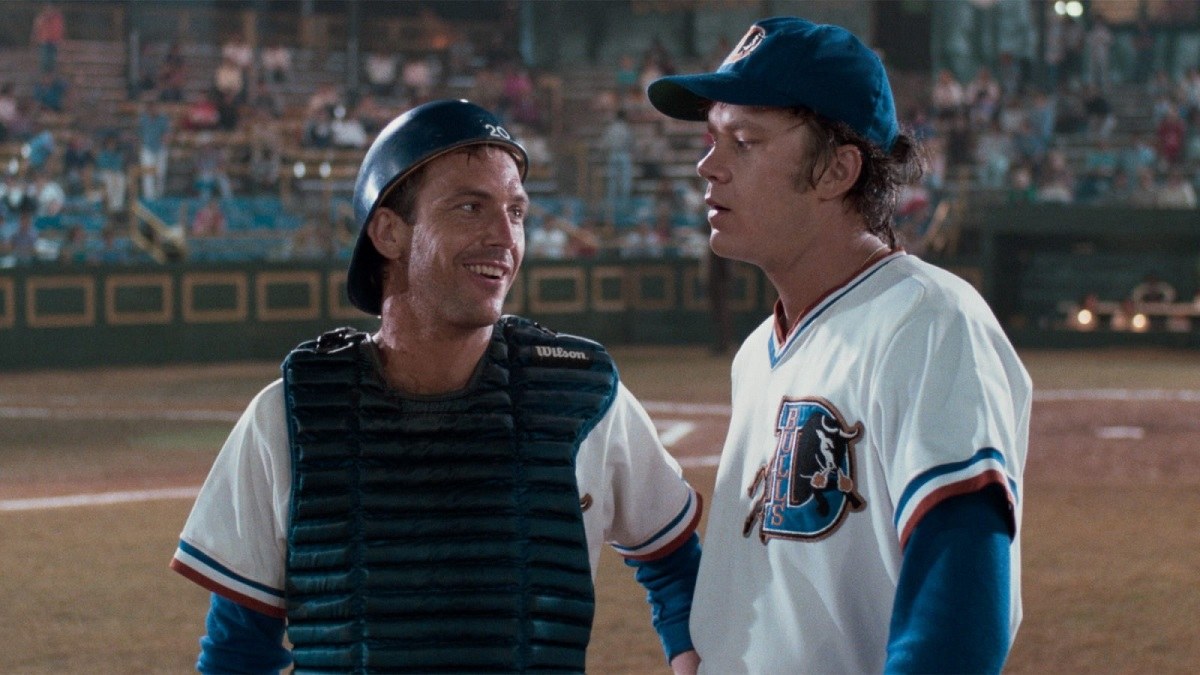Ever wondered what a catcher says to his pitcher during a timeout in a tight baseball game? Those conversations are partly why catchers make such great managers when they hang up the cleats.
Few positions in sports feel pressure like a pitcher in baseball. The most talented baseball team in the world can’t win if their pitcher can’t throw strikes.
Imagine standing on the mound with your team holding onto a 2–1 lead. Your arm feels like lead and your legs are as wobbly as if you just finished a 10-mile race. You just walked two batters and have zero confidence that you can throw your best pitches for strikes.
Thankfully, this position comes with a personal psychiatrist, who just asked the umpire for time-out. The coaches remain in the dugout while teammates patiently watch and wait. At this moment, a catcher’s role is to reset the pitcher’s confidence, mentality and mindset.
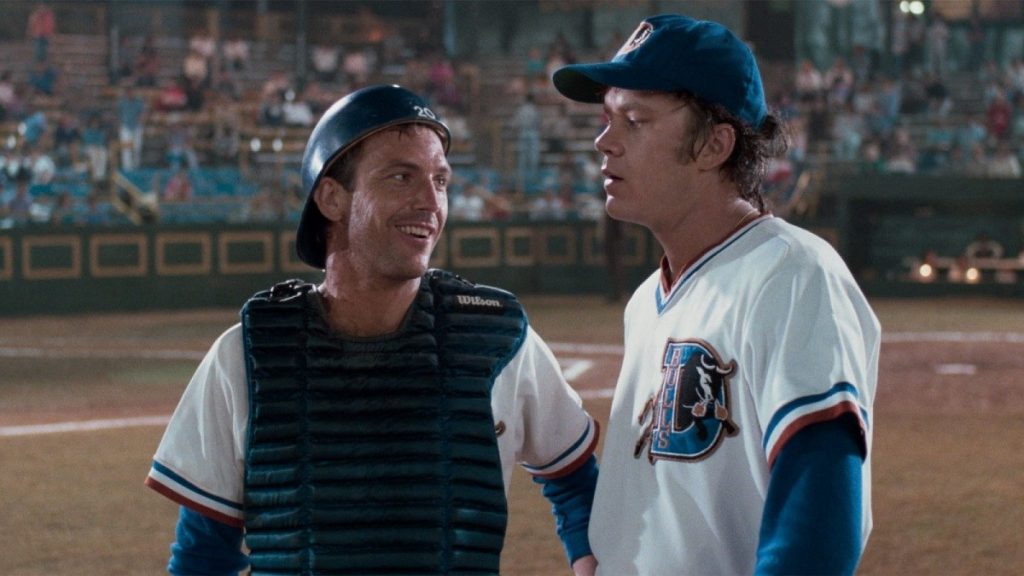
The position is highly unique. For starters, the catcher is the only player with the same perspective as the hitter. Eight players look in one direction while the catcher stares back at them.
The catcher calls every pitch and aligns his or her defensive teammates. On some days, the catcher’s role as a performance coach is the difference between winning and losing.
Catchers must have high emotional intelligence and an intuitive feel for the game. This is why 12 of 30 head coaches in MLB in 2019 were catchers in their playing days.
Full disclosure, I’m slightly biased. I played catcher from my first years in little league through senior year in high school. In many ways, catchers behave like great managers in companies. Let’s break it down.
1. Know When To Call Timeout
In 1956, Don Larsen stood on the mound for the Yankees in Game 5 of the World Series against the Brooklyn Dodgers. The Yankees were leading 2–0 with two outs and the home crowd roaring at a fever pitch.
Years later, Larsen recalled his emotions, “It’s a wonder I didn’t faint. I turned to centerfield, took my hat off and said to the man upstairs, ‘Please get me through one more.’”
This wasn’t any last out. Don Larsen was pitching the greatest game in World Series history, a perfect game. The Dodgers sent 26 hitters to the plate and Larsen retired all of them. A perfect game has only happened 23 times in 130 years of MLB history.
Larsen was one out away from immortality.
His Hall of Fame catcher, Yogi Berra, called every pitch of this masterpiece. With one out remaining, Yogi saw his pitcher step off the mound, clearly shaken by nerves. Did he call a timeout and run out to his rescue? Nope.
Decades later, Berra was asked about it, “I wasn’t going out there. Actually, I didn’t talk to him the whole game. He sat on one side of the bench and I sat on the opposite side.”
Berra instinctively knew two things:
- If Larsen was good enough to retire 26 consecutive batters without Berra calling a timeout, he was good enough to get one more.
- The last thing Larsen needed was for someone to break up his “flow state,” which was operating on a historic level.
Don Larsen was fortunate to have a famously low-ego catcher on that day. Rather than forcing his way into the process, Yogi Berra let his pitcher dictate the action. Larsen stepped back on to the mound and promptly struck out the last batter for the only perfect game in World Series history. Only then did Berra rush the mound, straight into Larsen’s arms to celebrate.
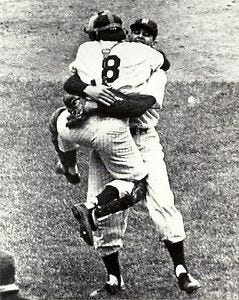
As managers, we desperately want to add value. We yearn to help, but something more devious is at play. Our ego wants some bit of credit for the success of those we lead. We want to believe our coaching, suggestions and ideas contributed to someone’s success.
Does it matter? I wouldn’t go as far as ignoring your stars as Yogi did. But if your team is succeeding, you are doing your job.
When someone on your team is cruising, get out of their way.
2. Share A Different Perspective
One of my favorite movie scenes comes late in “For The Love Of The Game.” Kevin Costner’s character, past-his-prime pitcher Billy Chapel, realizes he is throwing a perfect game late in a game at Yankee Stadium.
His catcher, played by John C. Reilly, recognizes that something isn’t right, and trots out to the mound. Billy looks at his catcher after staring blankly at the scoreboard, “Anyone been on base?”
“Nobody. This, I ain’t seen much of.”
It is obvious that Chapel is rattled by the enormity of the moment, “I don’t know if I have anything left.”
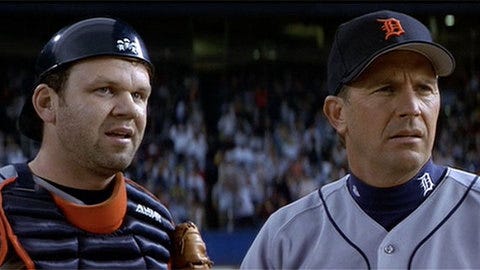
Playing for the league’s worst team, my beloved Detroit Tigers, Billy’s catcher helps him see the opportunity from a new perspective.
“You just throw whatever you got, whatever’s left. The boys are all here for you. We’ll back you up, we’ll be there. Because Billy, we don’t stink right now. We’re the best team in baseball, right this minute, because of you. We’re not gonna screw that up, we’re gonna be awesome for you right now.
Just throw.”
On more than a few occasions as a catcher, I called timeout to remind a pitcher that he didn’t need to do it all himself. He had 8 guys on the field hoping a ball might get hit to them. Do your best and let your team do the rest.
As a mentor, it is important to recognize when someone on your team is feeling too much pressure. They see the situation from one lens and lack perspective. I wrote about how managers are more effective when they share their experiences than when they give advice.
This is exactly how catchers behave, because most have never been effective pitchers. So they stay away from advice and simply offer their perspective. You can do the same as a manager.
Help them see that you do not expect perfection, nor is perfection necessary for the team to succeed. Just throw.
3. Ask What They Are Comfortable With
I played on a state championship baseball team in high school. We had an incredible pitching staff, led by an All-American who went on to play 11 seasons in the major leagues.
He was dominant against professional hitting and was the starting closer in the 2007 All-Star Game. If he made professional hitters look silly, you can imagine what someone 6’5″ and 230 pounds did to high school hitters.
The best chance an opposing team had was when our star got wild. It can be difficult to control a cannon arm capable of throwing a 94 mph fastball. It wasn’t a picnic to block those pitches when he threw them in the dirt either.
My trips to the mound were of the consulting variety. If he lost control, I walked out to give him time to catch his breath and think about what was working. I always led with the same question, “What’s working today?”
On some occasions, he had no control of his curveball. In others, he struggled to locate his fastball or his changeup. All three pitches were good enough to beat high school hitters, so long as he threw them for strikes. I needed to understand what to call more of, and what he wasn’t comfortable throwing on that day.
Managers often offer advice based on their perspective. We want to prescribe a solution based on our truth, a path that generated results for us. This isn’t any more effective than if I had told the best pitcher in Michigan what I thought he should throw.
Former MLB catcher, Brent Mayne, said, “The best pitch any pitcher can throw is the one he can throw with conviction, whether it’s the right pitch or the wrong pitch. The catcher’s job is to give him that conviction.’’ Mayne’s statement sounds like advice one might give to a new manager working with a team.
Ask your team what they are comfortable with. Find out what’s working for them and tailor your coaching to fit within their comfort range. Your team knows their strengths better than you do.
4. Change The Lens With Humor
There’s a great scene in “Bull Durham” where the entire infield congregates at the mound. Topics range from wedding gift ideas, a curse on a glove and a pitcher’s anxiety about his dad being at the game.
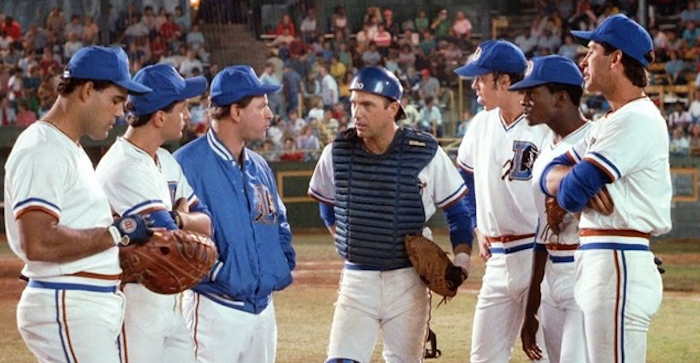
The topics have nothing to do with getting the next hitter out. It is spontaneous and hilarious. The players and coaches don’t take themselves too seriously, and why should they? It’s a game.
Another pitcher on my high school team was incredibly talented but young. On a team filled with seniors, he was our only sophomore. At times, the moment was too big for him.
My mound visits were decidedly different with this pitcher. My goal was to make him laugh and I went to any length in this pursuit. I rarely talked about the game. He was wrapped up in the moment, and I tried to break his concentration.
Insults often did the trick. He cracked up when I gushed about how hard the last batter hit his weak curveball. I might point out that our brutish first baseman tucked his jersey into his jockstrap again. Anything to get him to relax and have fun, which is the point of playing a sport.
Business is no different. It is easy to get caught up in the pressure of work. We talk about mission like we are headed off to war. Seriously? I sold motors, generators, new homes, mortgages and software. I loved every business but we weren’t exactly curing cancer.
You can wear a team down by pounding on the same mission incessantly without poking fun at it. Find opportunities for self-deprecating humor to break up the monotony of an eight-hour workday. As Heath Ledger’s Joker might say, “Why so serious?”
Leadership Is Intuitive
When a pitcher and catcher are clicking, the two seem to read each other’s thoughts. If you watch a baseball game and see a pitcher shaking his head often, his catcher is calling pitches that the pitcher is not comfortable with.
Pitchers are amongst the highest-paid players in baseball, but many will fight tooth and nail to keep their catcher happy.
“Pitchers are important but you have to have a good catcher. It’s like having a phenomenal racehorse, but no jockey. Will the horse win the race without one? Probably not.”
Brent Mayne
The same symbiotic relationship applies in business. No company will succeed long-term without top talent. But running a company isn’t as simple as dropping in a few stars and watching the cash flow pile up.
Every person in a company has different strengths, motivations and fears. Great managers take a unique leadership approach with every employee. They understand that “one-size-fits-all” management is a sure approach for losing good people.
Just like a catcher who must adapt to each pitcher on the team, a great manager adjusts to get the most out of every person on the team.
Like what you are reading? You can receive articles and updates like this directly to your email. We'll treat your information responsibly.
We value your privacy and will never spam you.
